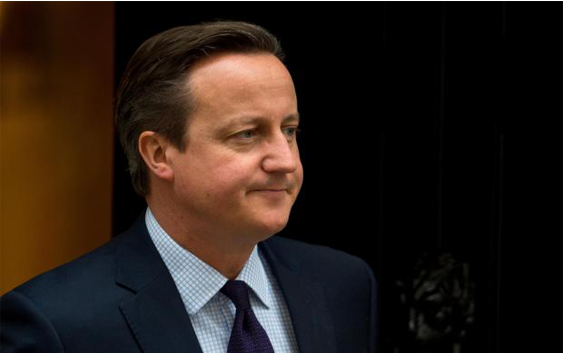The constitutional struggle between Holyrood and Westminster is set to intensify after SNP sources revealed ministers are considering campaigning for new powers in a second Scotland Bill even before the current one has reached the Statute Book.
The move raises the prospect of fresh political battles over the extent of devolution in the run up to the next General Election in 2020.
One Nationalist insider made clear the expectation was that the party’s 2016 manifesto would set out demands for more powers beyond the Smith Commission, most notably full fiscal autonomy for Scotland; a proposal rejected outright by David Cameron and his colleagues.
The source said that if, as many expected, the SNP won another majority in the Scottish Parliament, then there would be “a clear mandate to seek a second Scotland Bill”. It would, he added, then be “up to David Cameron to defy the will of the Scottish people for more powers”.
At present, the successful conclusion of the current Scotland Bill, which is due to hand Holyrood almost all powers over income tax, amounting to some £11 billion a year, and more powers over welfare, covering another £2.5bn, has not been completed.
The crucial fiscal framework, which seeks to establish the mechanism for the new tax powers and how this operates within the context of UKwide taxes, is still being worked out by officials and Ministers in London and Edinburgh.
The influential House of Lords Economic Affairs Committee has called for the legislation at Westminster to be halted until the framework is published, complaining that the process thus far has been characterised by undue haste and a lack of transparency.
Peers debate the bill on Tuesday but the committee will thereafter table a motion to stop its progress before the next debate, the Committee Stage, due in mid-December.
However, while committee members appear confident the Upper Chamber will support the move to halt proceedings, they want David Cameron to do so himself. The Scottish Parliament has already said it will not debate the bill until after the framework is published.
A deal was supposed to have been concluded this autumn but the two governments have been unable to agree on the mechanism for cutting Scotland’s annual block grant from the Treasury when its new tax-raising powers come into force. The latest timescale for publication is mid-January.
Peers have echoed the concerns of leading Scottish economist, Professor Anton Muscatelli, the principal of Glasgow University, who has warned that if the fiscal mechanism that underpins the framework is not sound, then Scotland could over the coming years lose hundreds of millions of pounds.
Lord Hollick, the Labour chairman of the committee, pointed out that, under one option put forward, Scotland’s block grant would “fall to a very, very low level indeed…in 2015/16 from £19.4bn to potentially £12.8bn in 2035”.
He said: “So over a 20-year period there would be a very substantial decline, which would place Scotland in a very, very disadvantaged position. We are talking hundreds of millions of pounds here, which would affect the ability of the Scottish Government to provide the services it wants to provide…They would be seriously circumscribed and curtailed.”
John Swinney, the Deputy First Minister, who is leading for the Scottish Government in the framework negotiations with the Treasury, said he would be against any legislative delay “because, fundamentally, we need to make progress on the bill so the Scottish Parliament can take its final decision on whether it is to be adopted before we get to the elections next May”.
Meantime, senior Nationalist sources also suggested the party leadership was now – barring Scotland being pulled out of the EU against its will – looking to beyond 2020 to hold a second independence referendum with a “progressive strategy” aimed at convincing Scots that Scotland, with more powers, was already “operating like an independent country”.
However, the source admitted that embedding this mood within Scotland was crucial before any second independence vote.
“If we lose a second referendum, there won’t be a third one,” he warned.
Article by Mike Settle / 00:49 Monday 23 November 2015 / Politics


>> “However, the source admitted that embedding this mood within Scotland was crucial before any second independence vote. “If we lose a second referendum, there won’t be a third one,” he warned <<
Luckily the Scottish people don't rely on " unnamed sources" of whatever political hue to decide, when and if there is a demand for a future Independence referendum, it will come from the people as they are sovereign in Scotland not Holyrood or Westminster.